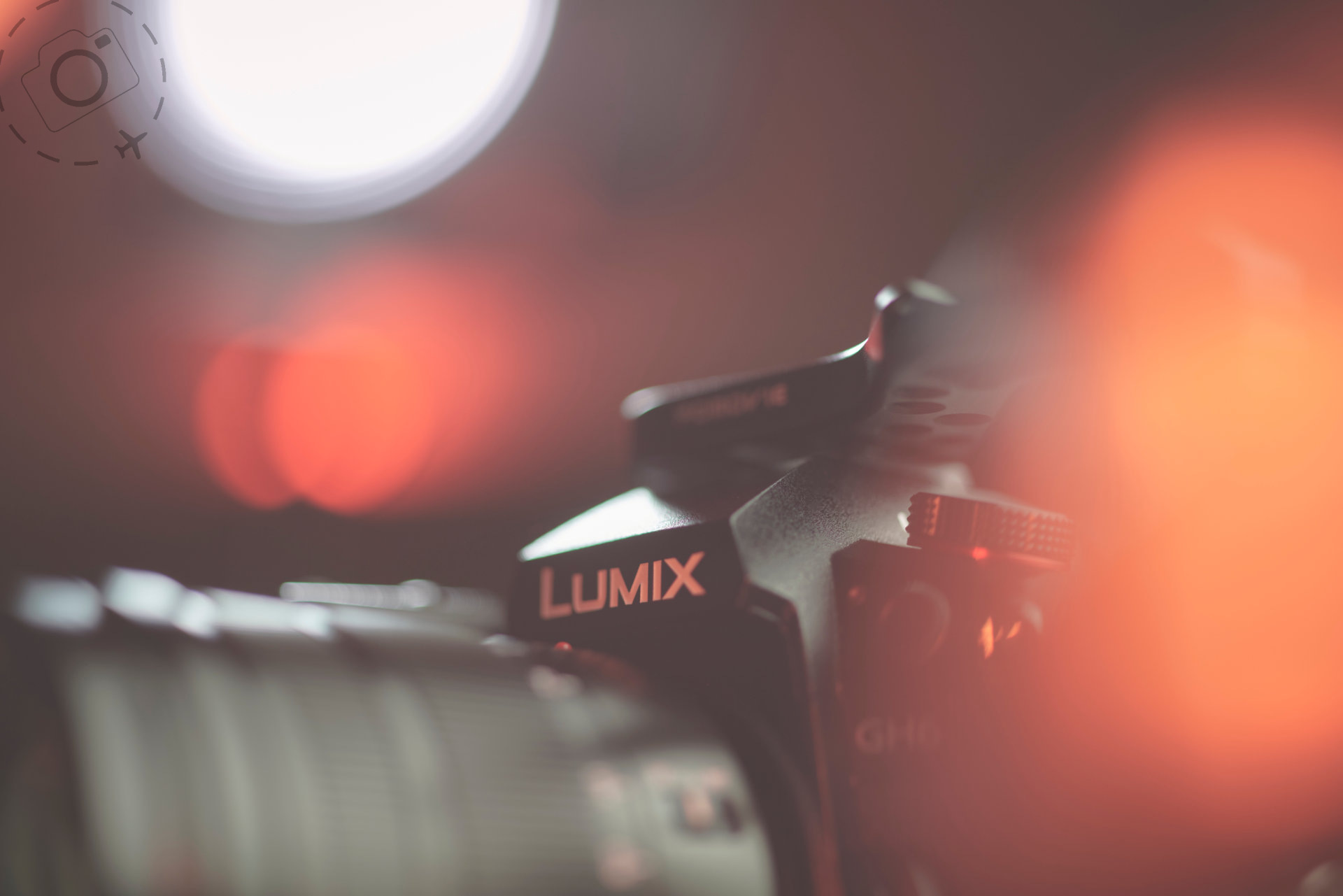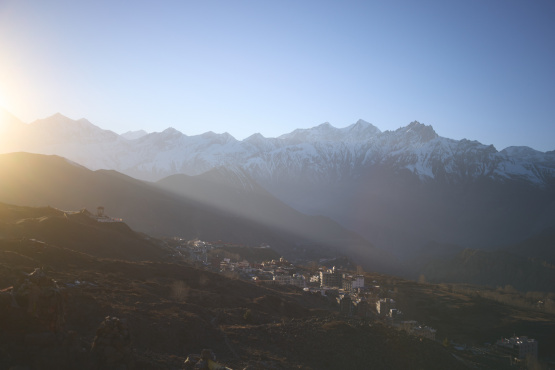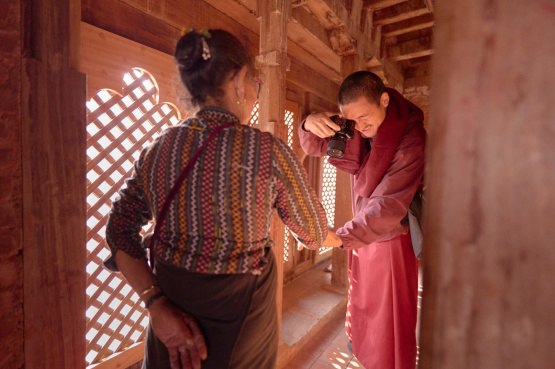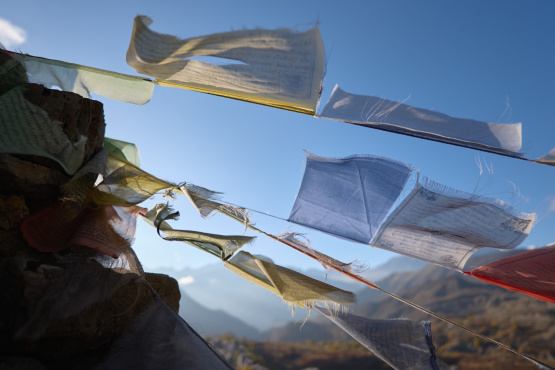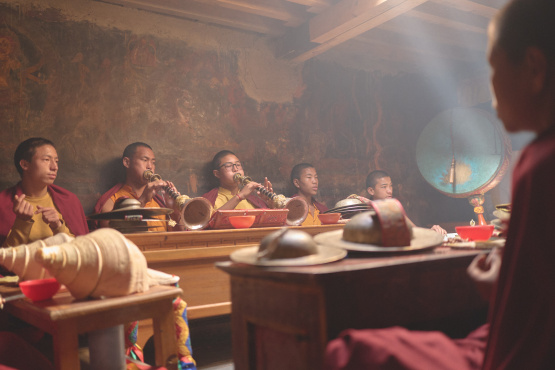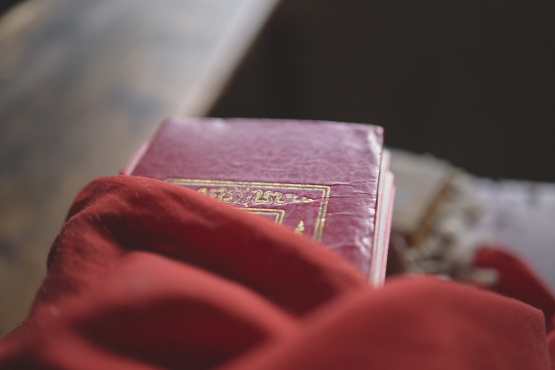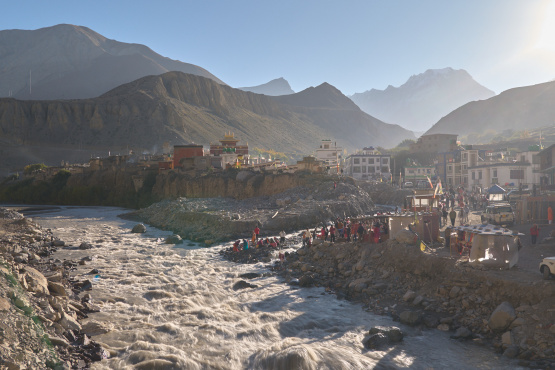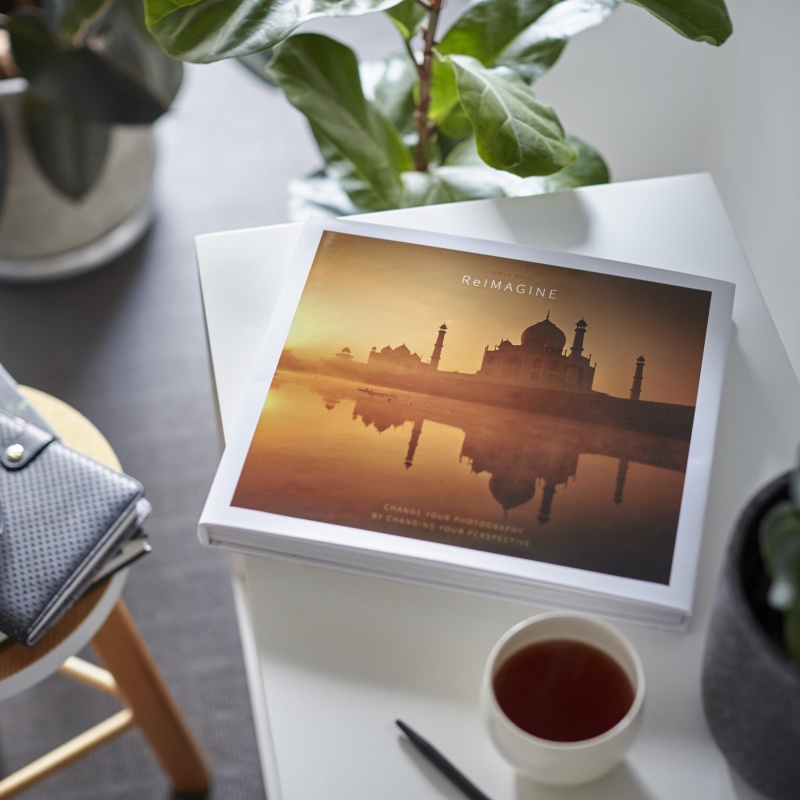Prime Time
In some ways I've been preparing for this project my entire career. Travel photography has been at the core of my work for the last 25 years, and with each step deeper into the world of video capture I've found myself leaning towards the joy of travelling light.
But how to pack light for a ten-part series filming across Nepal? Will my version of light prove practical as we dig deep into the art of story telling?
I've shot a lot of footage for a handful of travel companies in recent years, and I do my best work when travelling with a few primes lenses that lean on the wide side. 18mm and 35mm in particular have been my happy places. I always have an ND64 tucked away in my pocket, a magnetic version by OKKO that is super clean and avoids colour shifts. This lets me shoot wide in daylight and enjoy a little bokeh. Light and bokeh are my prime tools for building beautiful composition, for stills or video.
I love my S-series primes from LUMIX. These are usually F1.8 except for the 100mm Macro at F2.8. But I also love my Sigma zooms, such as the 14-24mm F2.8 and their 28-105mm F2.8. Both are incredibly versatile lenses while delivering me enough bokeh to work a scene. Naturally those lenses are coming with me.
Studious
When I first started shooting commercial video content I found myself expanding my gear shelf. Not just gimbals and monitors and chunky tripods, but all manner of big and small kit to rig out the cameras. And I felt I was going in the wrong direction, that I was making my video work more complicated instead of more organic. I love organic. We started stepping back from the heavy gear setups and found a more pleasing vibe to our work.
And that's the vibe I'm taking into the Tashi production. Less is more. Light is right.
Inside and outside the studio are very different challenges, and we will have several studio days as part of this series. But most of our hard work will be on the road, and I don't want the experience of being in the Himalayas to be dragged down by heavy gear.
One of my guiding principles for photography is to stop trying to get EVERY shot. That's the path to madness. Capturing everything is not the same as capturing better. It's easy to put too much effort into coverage and not enough into quality. Getting that balance right is a constant tension, and it plays in our minds every single day we're on a job.
Hybrid Solution
Both Lee and Cam come from a world where big rigs and high data rates are the default. They are used to bigger budgets and bigger gear. So where does the world of a travel photographer shooting with hybrid-mirrorless gear connect with Netflix level productions?
It's a real challenge for Lee in particular to find ways to minimise his carry-on luggage, while maximising his options once we're filming on location. Lee has already been working with the LUMIX S5IIX for over a year and he knows just how good these cameras deliver. He can capture ProRes at a variety of jaw-dropping data rates, even with very light and very nimble setups. This also means he can fill up terabytes worth of SSD quicker than we can buy new ones. (Storage is an entirely different hurdle we have to clear!)
The L-mount lenses and LUMIX full frame sensors offer Lee a reasonable compromise. They are lighter than cinema rigs, but offer a degree of fidelity that allows for plenty of post-production tuning. In short, we can push the footage anywhere we need to for creative purposes. Lens technology has never been so generous either, and thanks to Sigma and Panasonic we have all the gear we could possibly need for the job.
We just have to find a way to get everything on the plane :)
– Ewen

Joy of Tashi

The story of a young monk in Nepal, on a journey to discover where photography and Buddhism come together.
Meet Tashi
